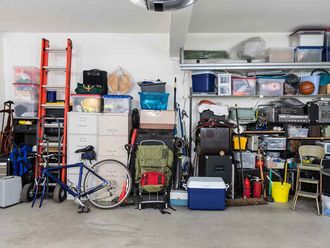Environmental protection is one of the cornerstones of sustainable development for the UAE since the founding of the Union. The late Shaikh Zayed Bin Sultan Al Nahyan paid a lot of attention to environmental issues and conservation of wildlife and natural resources.
Since environmental sustainability is very crucial to realising the UAE’s goal of becoming a global role model, it is a key focus area in UAE Vision 2021 and 2071. As a result, environmental protection and resource sustainability receive special attention in the plans that seek to elevate the UAE’s global stature.
The Vision 2071 aims to make the UAE the best country in the world through a series of bold initiatives across several sectors and industries. The Centennial Plan has four pillars: Development of education, with a focus on advanced technology and engineering; a diversified economy; a government focused on the future; and a happy and cohesive society.
An in-depth look reveals that to achieve these objectives, environment issues should have priority in all fields, especially in education so that we can instil environmental stewardship in the minds of future generations.
Environmental education has become one of the main elements while developing curriculum in the country. Accordingly, efforts have been directed to include such contents in school curriculums and textbooks at all stages.
Continuous efforts are also made by various government agencies, companies and not-for-profit organisations to raise awareness on issues such as energy and water conservation, recycling among others at federal and emirate levels. Environmental awareness provides citizens and residents with opportunities to acquire the necessary knowledge, skills, attitudes and values needed to protect, conserve and improve the environment in the country.
The UAE has realised very early the benefits of transitioning to a green economy, especially on soft security issues such as food and energy, and has taken pioneering strategic steps such as “UAE green growth strategy”. Also, enablers have been built to realise the sustainable development goals (SDGs) set out by the United Nations for 2030 in water, biodiversity, climate change, sustainable cities, transportation and so on.
In addition, UAE has continued to invest in several clean energy projects in the country and it is currently one of the largest global investors in that sector. The country aims to generate 50 per cent of its energy requirements from renewable sources by 2050 and reduce the carbon footprint of power generation by 70 per cent as well as to increase consumption efficiency of individuals and corporates by 40 per cent.
Last year, for instance, the Ministry of Climate Change and the Environment, non-governmental organisations and corporates have taken significant strides towards environmental protection. The ministry adopted policies on several issues related to biodiversity, air quality and food safety. Sustainability of the marine environment, fish stocks, animal health, agricultural health, besides climate change, environment and green development, and ecotourism came in for special attention.
In July 2018, the Ministry of Climate Change and Environment launched the National Ecotourism project, ‘Nature Treasures in the UAE’, which aims to place the UAE on the global eco-tourism map. Eco-tourism now accounts for 20 per cent of global tourism.
Two environmental initiatives launched last year to develop coastal and marine areas will help maintain the country’s unique biodiversity and reduce greenhouse gas emissions in line with Paris agreement on climate change. It helped the UAE top the 2018 Global Environmental Performance Index for marine protected areas, according due recognition to its commitment to expand natural reserves. The number of protected areas in UAE increased from 19 in 2010 to 43 in 2017, with a total area of 1,800 square kilometres, constituting around 15 per cent of the country’s territory — eight of which are wet reserves spread throughout the country.
Natural resource conservation aims to protect the wealth provided by nature as well as man-made assets for current and future generations. It will help make the country a world leader in providing a stable future with a green economy, best government and an improved quality of life. Naturally, it will enhance the satisfaction and happiness of citizens and residents.
Dr Mohamed Abdel Raouf is an independent environment researcher.










